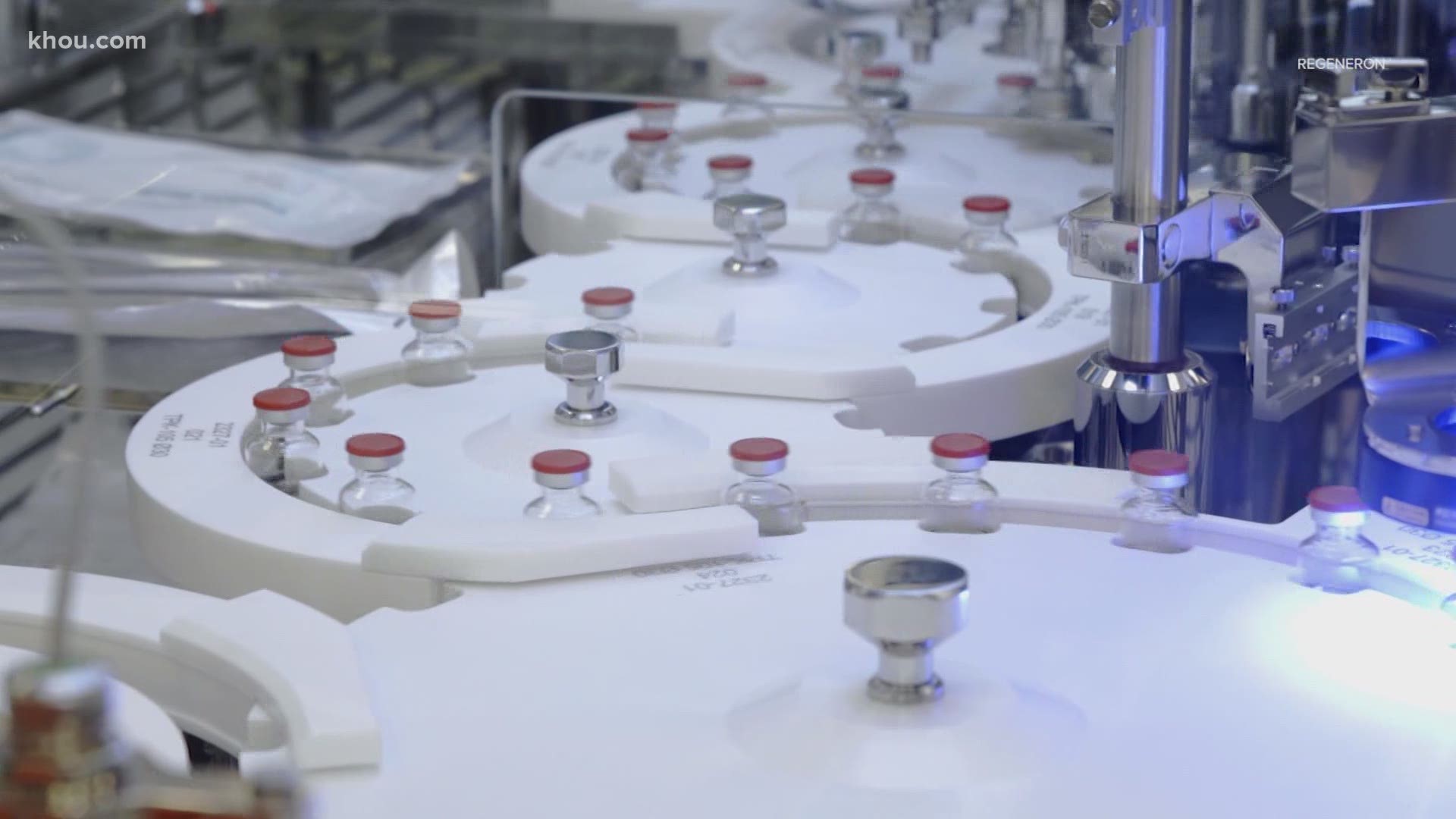HOUSTON — A UTHealth clinical trial at Lyndon B. Johnson Hospital in Houston is studying the effectiveness of the same "antibody cocktail" President Donald Trump is being treated with for his COVID-19 diagnosis.
The treatment is called REGN-COV2, and is produced by Regeneron. It is a combination of two monoclonal (laboratory-made) antibodies that target two different sites of the spike protein found on the surface of SARS-CoV-2, the virus that causes COVID-19.
The REGN-COV2 antibody cocktail is a combination of antibodies originally isolated from patients who have recovered from COVID-19 and produced by mice that have been genetically modified to have human immune systems, according to UTHealth.
Antibodies are proteins created by the immune system to fight a pathogen or infection. The targeted surface spike protein gives the virus a crown-like appearance and allows it to attach to and enter cells, according to UTHealth.
“This is a pretty aggressive and forward-thinking treatment regimen," said Luis Ostrosky, MD, a professor of infectious diseases at McGovern Medical School at UTHealth.
“He’s getting the Cadillac of treatment for COVID-19," said Dr. Ostrosky. “My only hope is that this is the standard of care that every American gets.”
Early results from UTHealth's clinical trial show promising outcomes in a population of 275 patients: they experienced lower viral load, and decreased symptoms.
Regeneron is sponsoring the clinical trial.
President Trump is also receiving a course of remdesivir treatment, which research shows can shorten the time a COVID-19 patient spends in the hospital.
The President's physician, Dr. Sean Conley, said they pursued this combination of treatments in order to do everything possible to protect the President, even though the FDA has not approved the Regeneron antibody cocktail yet.
Dr. Ostrosky said UTHealth is currently working on 25 clinical trials related to treating COVID-19.
“We’re really working at warp speed in this epidemic. We’re doing thigns in 6-7 monhts that would normally take two to 10 years," said Dr. Ostrosky.
UTHealth's study period will last 32 weeks. On day one of enrollment, patients will receive four subcutaneous injections of either the trial agent or a placebo. Participants will be tested for COVID-19 weekly during the first month they are enrolled.
This story will be updated.

